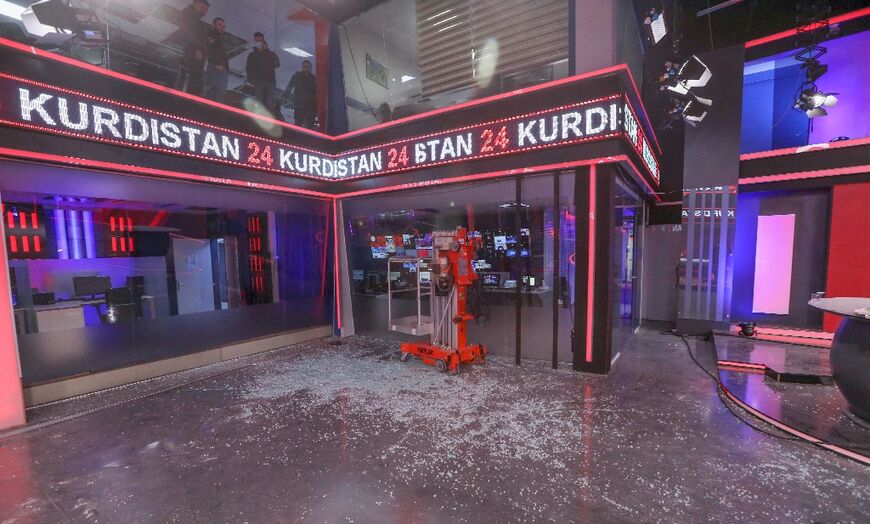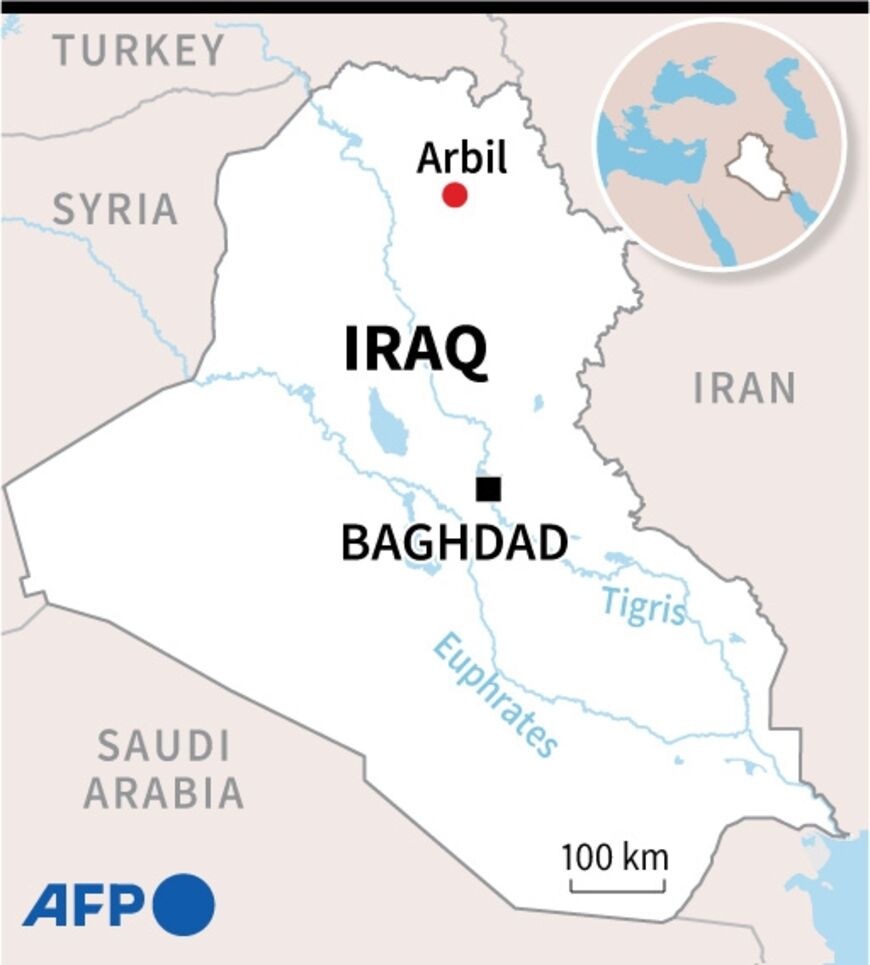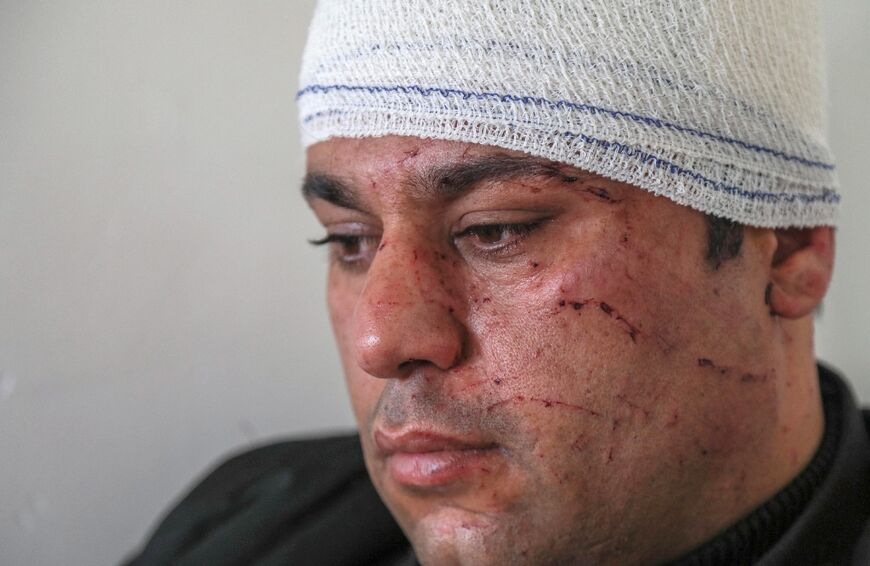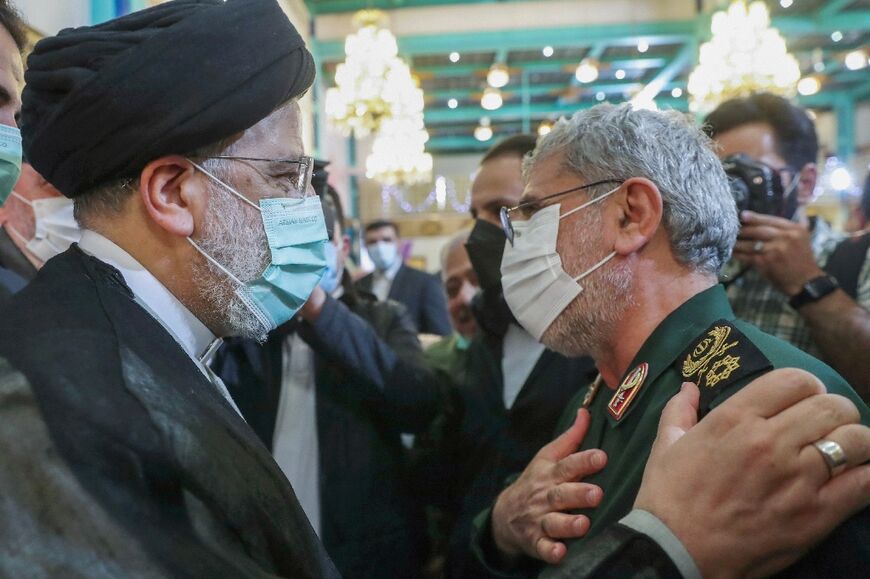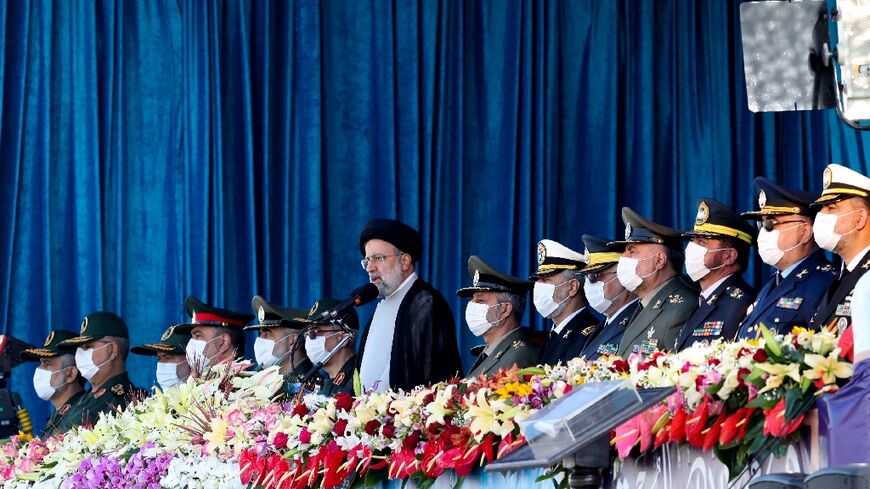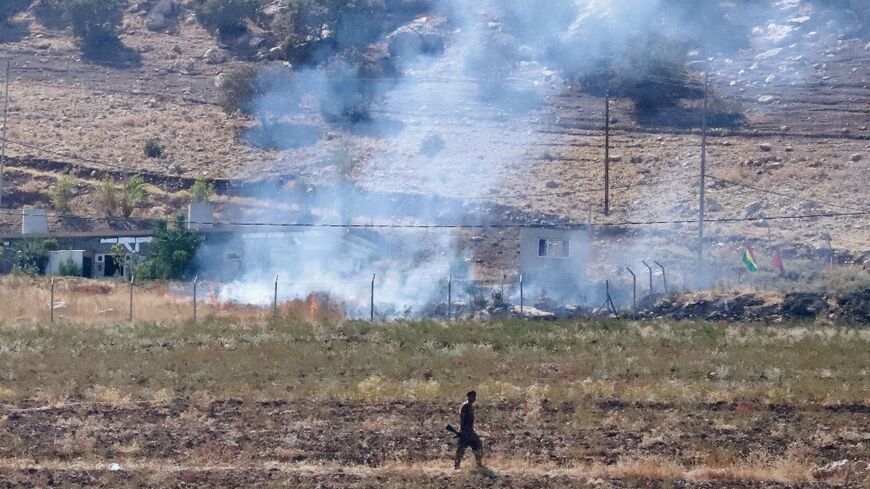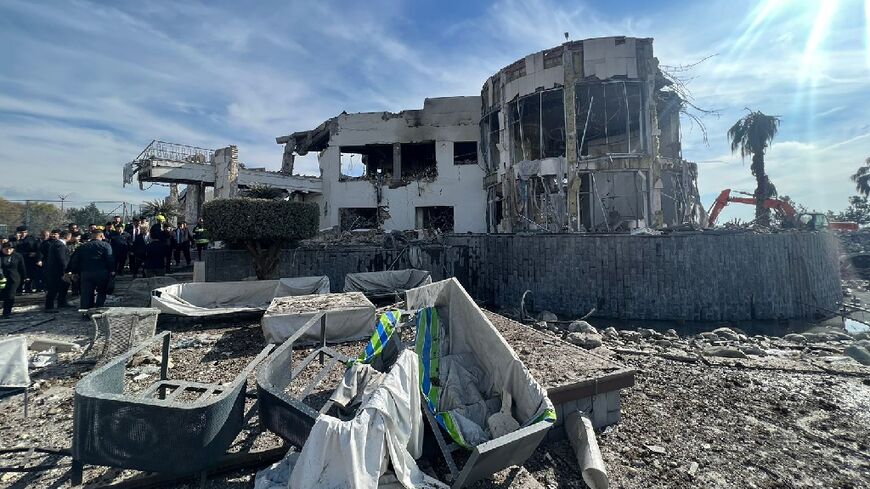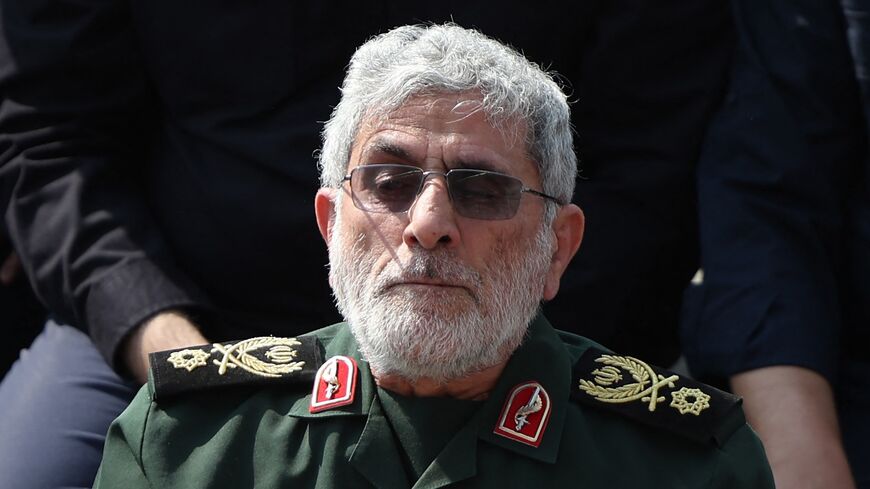Iran says missiles targeted 'Israeli site' in Iraq's Arbil
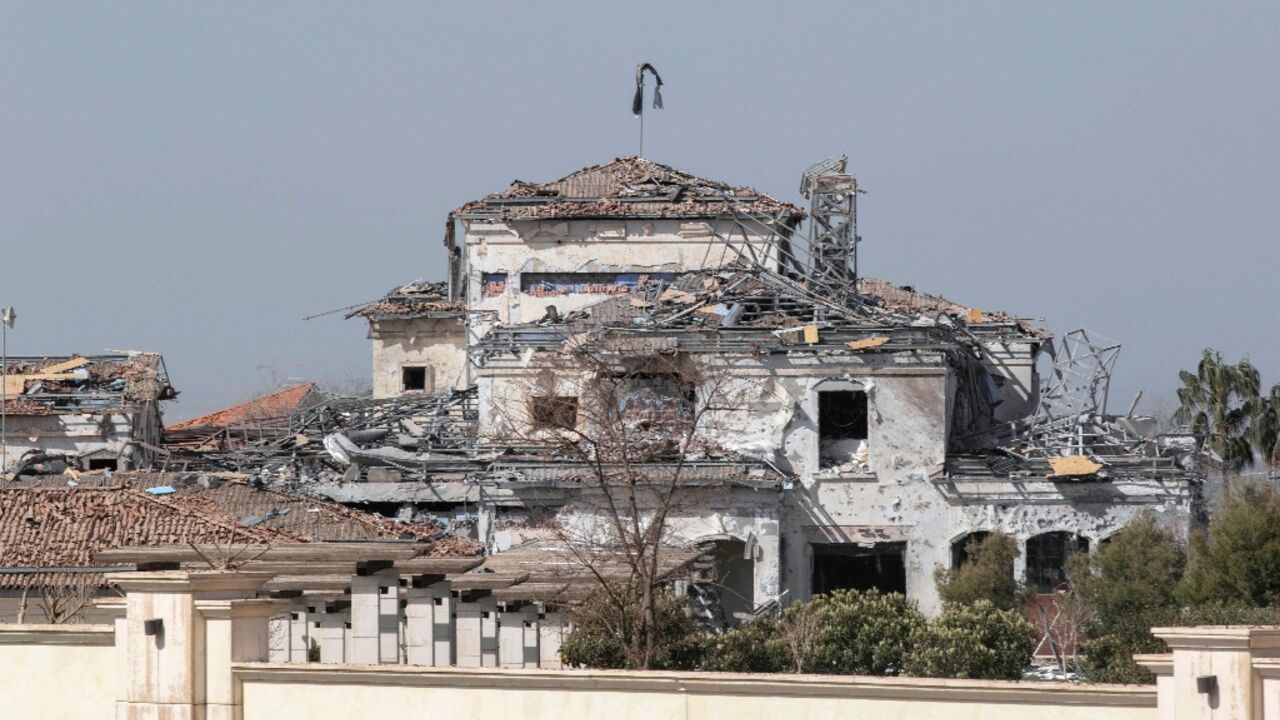
Iran claimed responsibility for missile strikes Sunday on the northern Iraqi city of Arbil, saying they targeted an Israeli "strategic centre" and warning of more attacks.
Kurdish authorities insisted the Jewish state has no sites in or near Arbil, capital of their autonomous region in the country's north.
In Baghdad, the foreign ministry condemned the attack as a "flagrant violation of (Iraqi) sovereignty".
Iraq summoned the ambassador of its ally Iran, Iraj Masjidi, to protest at the strikes that had caused "material losses" and "damage to civilian installations and houses".
The authorities in northern Iraq said 12 ballistic missiles rained down on Arbil in the pre-dawn cross-border attack that lightly wounded two civilians.
Iran's Revolutionary Guards confirmed they fired the projectiles, saying the attack targeted sites used by Israel, a top ally of the US.
A "strategic centre for conspiracy and mischiefs of the Zionists was targeted by powerful precision missiles fired by the Islamic Revolutionary Guard Corps", the Guards said in a statement.
There was no immediate reaction from Israel, while State Department spokesman Ned Price said "no US facilities were damaged or personnel injured, and we have no indications the attack was directed" at the US.
Iran holds considerable influence over the federal government in Baghdad, and Iraq hosts a dwindling number of US troops who lead a coalition against the Islamic State jihadist group.
- 'Baseless allegations' -
An AFP correspondent in Arbil said he heard three explosions before dawn.
Taxi driver Ziryan Wazir said he was in his car when the missiles struck.
"I saw a lot of dust, then I heard a very loud noise. The windows of my car exploded and I was injured in the face," he said, lying in a hospital bed with his head swathed in white gauze and a bloodied scar running across his cheek.
The State Department's Price condemned the strikes as an "outrageous violation of Iraq's sovereignty", adding that the US would "help our partners in the region defend themselves".
Sunday's missile assault comes nearly a week after the Guards -- Iran's ideological army -- vowed to avenge the death of two of their officers killed in a rocket attack in Syria they blamed on Israel. Iran backs the government in Syria's civil war.
Israel, the Guards said at the time, "will pay for this crime".
The Guards in their statement Sunday said: "Once again, we warn the criminal Zionist regime that the repetition of any mischief will face harsh, decisive and destructive responses."
Arbil governor Oumid Khouchnaw dismissed as "baseless" any notion of Israeli sites in and around Arbil, adding: "There are no Israeli sites in the region."
He said the missiles crashed into vacant lots but that buildings and homes were damaged.
The Kurdistan Democratic Party (KDP) organised a media visit to the residence of a Kurdish oil magnate that was damaged in the attack.
Kurdistan24 television channel, located near the US consulate, posted images on social networks of its damaged offices, with collapsed sections of false ceiling and broken glass.
A State Department spokesperson emphasised later Sunday that "the US was not the intended target", adding that "most if not all of the missiles were directed at a private Iraqi Kurdish citizen's residential compound".
- 'Endanger' nuclear agreement -
Iraq saw a surge in rocket and armed-drone attacks at the beginning of the year.
It coincided with the second anniversary of the killing of Iranian General Qasem Soleimani and his Iraqi lieutenant Abu Mahdi al-Muhandis in a US drone strike near Baghdad airport.
In late January, six rockets were fired at Baghdad International Airport, causing no casualties.
Iran had responded to the 2020 killing by firing missiles at military bases in Iraq housing US forces.
Sunday's assault also comes amid a pause in negotiations between Iran and world powers to revive its 2015 nuclear agreement, despite a deal having appeared close.
The setback came after Russia said it was demanding guarantees that Western sanctions imposed on its own economy over its invasion of Ukraine would not affect Moscow's trade with Tehran.
The French foreign ministry condemned the attack in the "strongest terms" and said such actions "endanger the efforts to enable a return" to the nuclear deal.
The European Union said there was "no justification for such an act of violence against the territory of a sovereign country", while Germany said that "those responsible must be held accountable".
Iran's regional rival Saudi Arabia expressed "solidarity" with Iraq and support for measures "to protect its security and stability".
burs-tgg/jsa/lg


